#lbc
Text

have these little silly's I made.. 😭
#lovebrush chronicles#lbc#silly#for all time#ayn alwyn#alkaid mcgrath#clarence#lovebrush alkaid#lovebrush cael#lovebrush clarence#lovebrush ayn
32 notes
·
View notes
Text
Electric Screaming Don Quixote's weapon just looks like those plasma balls toys to me

#shitpost#limbus company#idk if someone already did this#project moon#limbus don quixote#lbc#lbc memes
22 notes
·
View notes
Text
Sinclair comes out

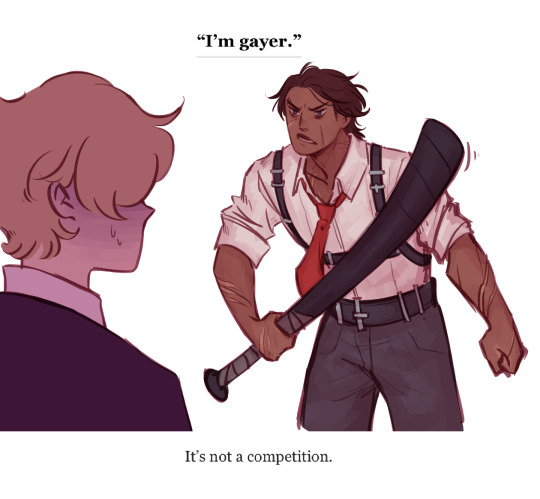
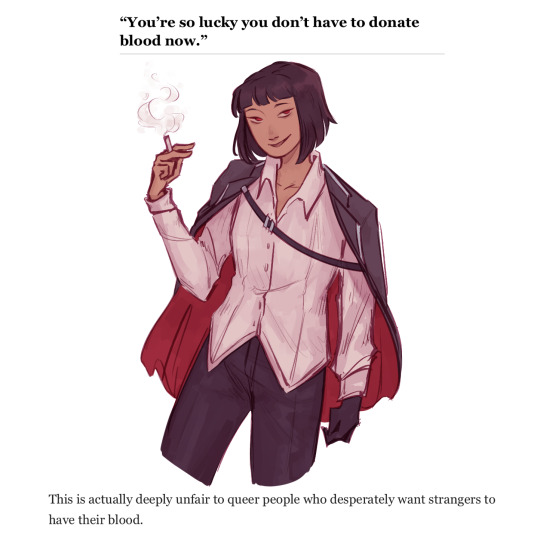
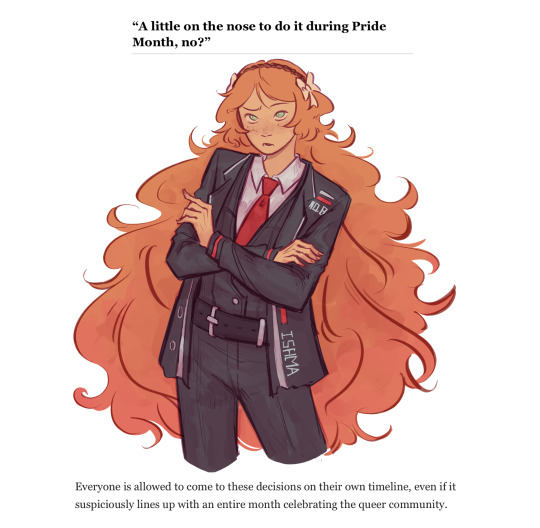
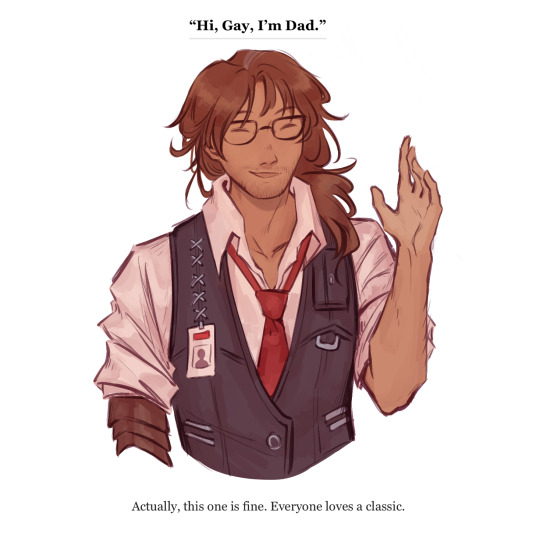
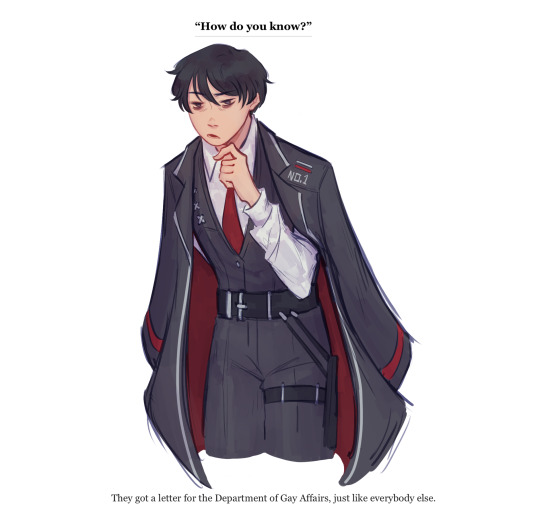

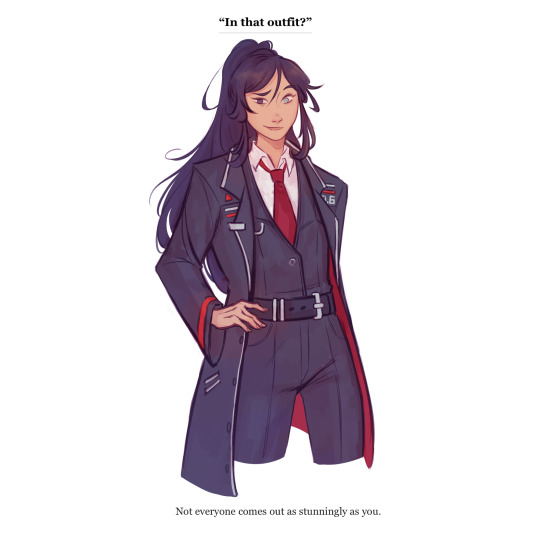
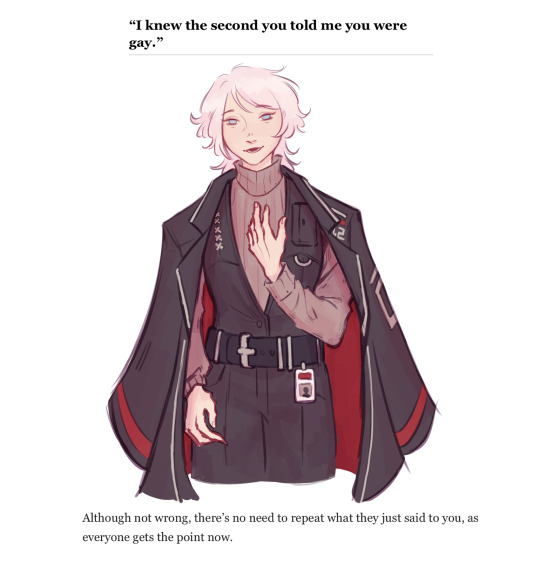
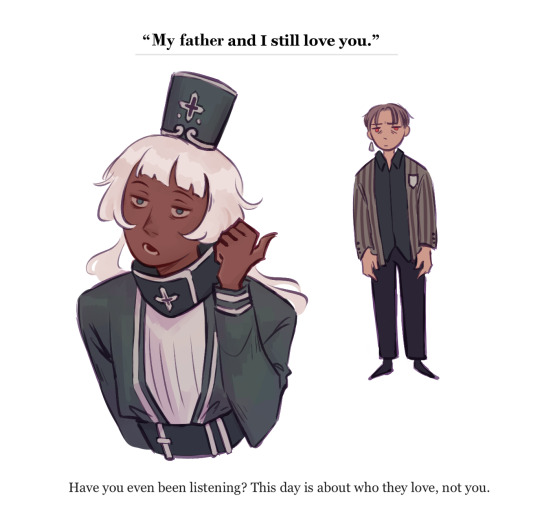

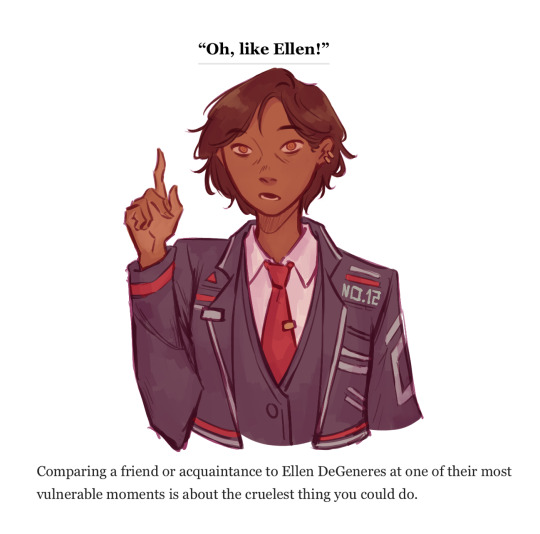

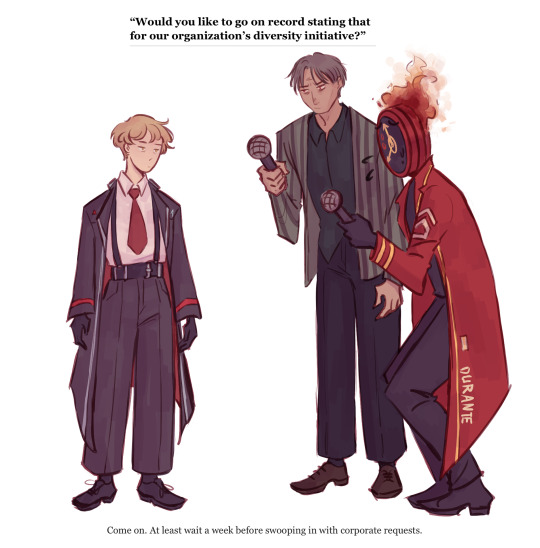
#I don't think heathcliff knows what the word gay means he just refuses to lose to anyone on anything#anyways I spent 4 entire days drawing to make this I haven't drawn this much in my entire life#paint tool sai#fanart#project moon#limbus company#lbc#sinclair lbc#sinclair limbus#sinclair limbus company#sinclair#emil sinclair#dante#dante limbus#heathcliff#ryoshu#ishmael#gregor#yi sang#hong lu#faust#don quixote#rodion#rodya#outis#vergilius#meursault#mist gardens trash#mist gardens tag
6K notes
·
View notes
Text

SUEÑO IMPOSIBLE
2K notes
·
View notes
Text
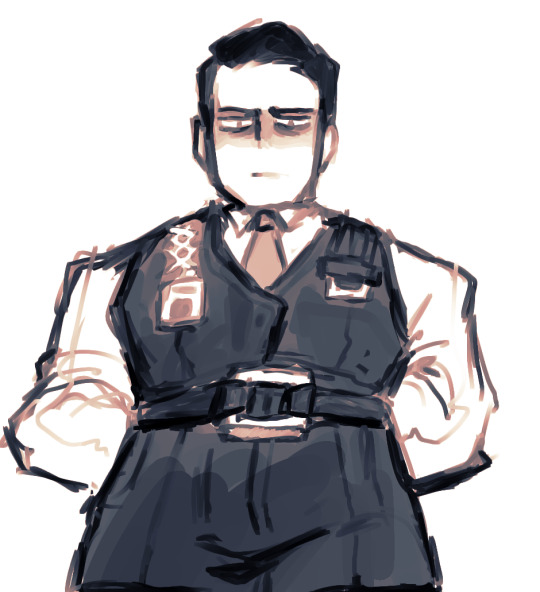
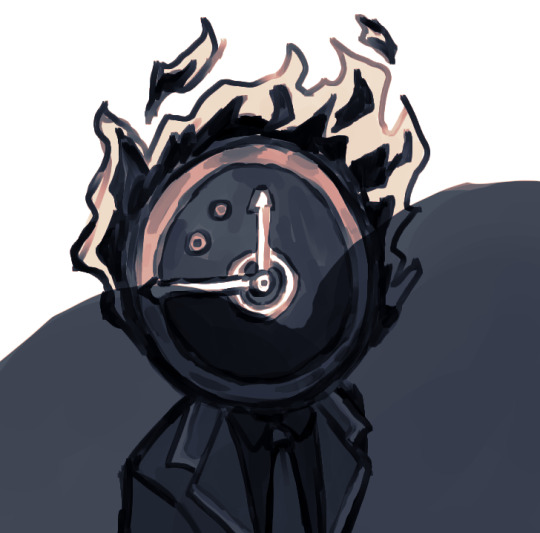
nice view
#my art#doodle#limbus company#meursault#meursault limbus company#dante limbus company#lbc#danteh#clip studio paint#you can pry Meursault from my cold dead hands
712 notes
·
View notes
Text
That one weird girl in your class
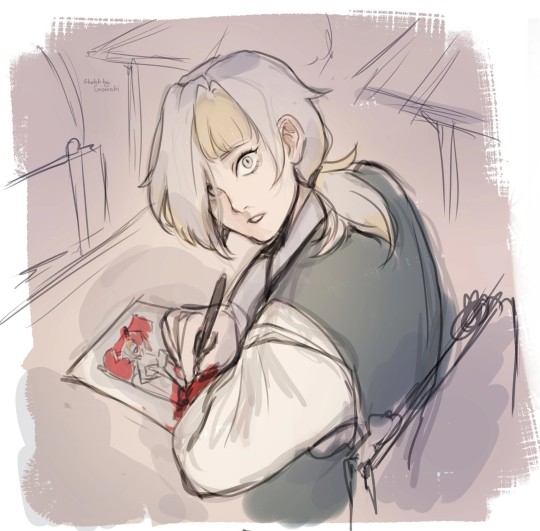
#fan art#digital art#limbus company#limbus company kromer#limbus kromer#kromer#lbc#project moon#pjm#limbus company fanart
417 notes
·
View notes
Text
clarence and his counterparts: man or monster?
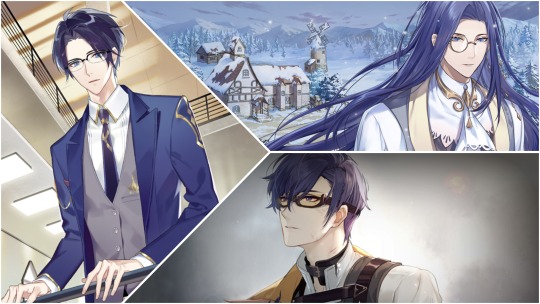
So we were talking about Clarence’s new android SSR (Faint Night Light) in the LBC discord server, and it got me thinking about the monster allusions that seem to be a common thread across Clarence’s main stories. Then we discussed the diary entries from his White Day event, and it occurred to me that this monster imagery also ties into his modern-day counterpart – and with that, this post was born.
In other words: is Clarence a man, a monster, or somewhere in between?
[ SPOILERS: Clarence’s main stories and Chrono Theatre diaries. This meta post is structured as story-specific sections, namely Godheim, Eden, and the modern world, so you can skip over the world(s) you haven't read yet. No Awakening spoilers, don't worry! ]
- ☽ -
Godheim: Archmage Clarence
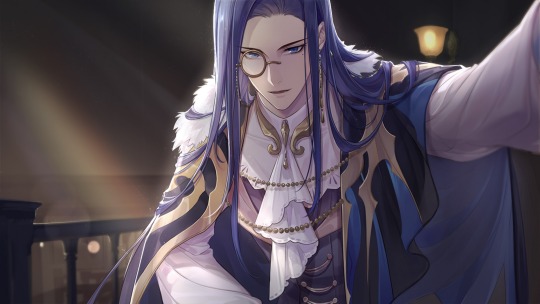
First, let’s talk about Godheim Clarence. As the Archmage, he bears a heavy responsibility upon his shoulders – to oversee the Magi Tower, to fight the Glacial Butterflies, and, ultimately, to protect the country and its people.
In order to fulfil this duty that he has chosen to undertake, Clarence seals his heart and shuts others out. He denies his emotions, and resents himself for having these emotions, to the point that he disparages MC for “[acting] impetuously” and belittles her capabilities when she shows concern for Amelia’s wellbeing. Archmage Clarence’s impassivity is his shield against the emotions he views as a hindrance.
Yet he was not always this way. Clarence is a casualty of cruel circumstances, a tender soul torn apart by trauma. When MC is confronted with the truth of the mages’ magic, having witnessed a mage die before her very eyes, she notes that “[there] is no pain or compassion on Clarence’s face,” because “[this] is a sight he has seen all too many times before.” Decades of watching his fellow mages succumb to the Glacial Butterflies that nest inside them, and decades of having to end the lives of mutating mages under his purview, have conditioned Clarence into numbing his heart to such pain. How else could he have stayed sane, after a century of bearing witness to suffering wrought by his own hands?
Archmage Clarence’s disposition is initially described by MC as an “[icy] presence,” but this is the facade that he projects as a defence mechanism, not his genuine self. Clarence is so accustomed to the chill of the Glacial Butterflies within him that he has taken on the frost as a personality trait, believing that his frigidity defines him. He does not view himself as a human capable of warmth; instead, he thinks of himself as a mutant, as an icy monster.
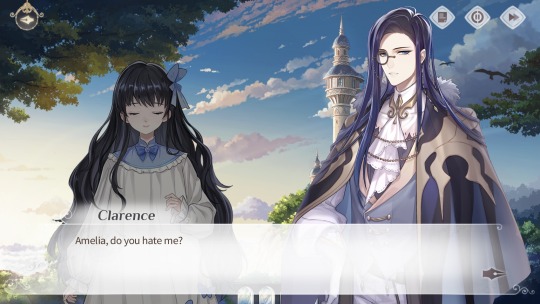
Even so, Clarence cannot deny his innate inclination towards kindness. When he notices that Amelia isn’t feeling well, he tells her to sit in the carriage. When Amelia’s temperature drops, he casts a spell to warm the shivering child up, even as he grumbles that he’s wasting his time and magic. When Amelia’s death is imminent, he tries to send her off in the gentlest way possible, then grants her final wish by conjuring a connection to the water mirror. Clarence may insist that he does not care, but his actions reflect his compassion.
It is this very kindness that steers him towards a path of selfless sacrifice, for the sake of his country and its people. The life of a mage may have been forced upon him, by the man that gave a gravely injured child no other option but the potion that would transform him, yet Clarence learns to harness his power for good. He spends his youth eliminating Glacial Butterflies and protecting the village of the snow plains, and despite the harsh conditions of the path he now treads, he does not hold a grudge against the family that sold him off and thrived in the resulting profit. Instead, he returns to check on them from afar, and when an onslaught of Glacial Butterflies attack, he protects them with every last bit of energy within him.
Still, his family’s betrayal left an indelible mark on his psyche. Back when he’d been given the potion, he’d resolved to succumb to his injuries rather than drink it. Despite his instinctive desire to live, MC notes that his “will to live [had been] virtually non-existent,” because there is “[no] despair greater than being betrayed by your own family.” The young Clarence had not seen a reason to live, when his family had forsaken him. It is only when MC saves him, urging him to live on, that he resolves to survive and repay this debt. Each time MC encounters him in her voyage through time, he is on the verge of death, and each time, his dwindling will to live stems from his despair over those he could not save. What ultimately keeps him alive is the vow he swore to his saviour.
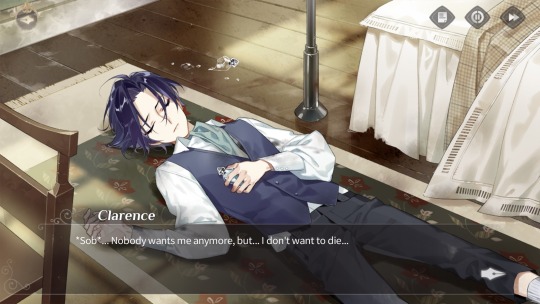
This characterisation is one that carries through his immortal lifespan. Clarence does not live for himself; he lives for others. Whether that means risking his life to defend a village, or sacrificing himself in a ritual to save the country’s inhabitants, the underlying premise is the same – Clarence lives for the person who saved him, and for the promise he made to them. He allows others to form negative opinions of him based on the assumptions they’ve made, in order to keep the secret of the ritual and the Glacial Butterflies from them, because their scorn towards him matters less than their safety. He closes himself off from others, never permitting them to reach out to him, because he cannot allow companionship and compassion to distract him from his purpose. He “[cannot] afford to be sentimental,” because he cannot have anyone or anything clouding his judgement. Better to be the enemy of the state that saves it, than the friend of the state that cannot do anything as it crumbles.
It is ironic, then, that Clarence’s devotion to his promise leads him from striving to live and fulfil it, to voluntarily dying for that same promise. His life, his existence itself, is secondary to the promise he has made. He will live to protect the world for his saviour, but if the only way to protect it is to die, then die he shall. Perhaps he views it as a penance of sorts, an atonement for the sins he’s committed. Perhaps he believes the new world would be better off without a monster like him.
For all his calculative callousness and stoic solitude, Clarence is deeply self-aware. Not only is he conscious of the suffering he inflicts and the ramifications of his actions, but he also ruminates upon his sins until they turn to guilt in his gut and self-loathing in the deepest recesses of his soul. He does not turn a blind eye to the pain he witnesses; instead, he looks it straight in the eye, internalises it, and forces himself to feel nothing at all.
Clarence may appear to have no qualms about exploiting people and reducing them to cogs in a plan greater than its constituent parts, but his interactions with Amelia prove otherwise. Right before he sends her off on what is meant to be a suicide mission, his carefully-crafted defenses slip, and he asks whether she hates him. Clarence believes that he has failed to live up to the Archmage’s title, that he has fallen short of being a “guiding force for all the mages” and a “protector.” He condemns himself for his callous strategies and merciless manipulation, since he has been treating people like chess pieces and “using them as [he sees] fit.” He disparages himself for “[standing] by on the sidelines, safe and sound.” He believes others hate him because he’s given them all the reasons to, because he deserves to be hated, because he, too, hates himself. All this while, he fails to recognise that he has taken on the greatest sacrifice of all – the burden of leadership, of decision-making, of being responsible for all the blood on his hands.
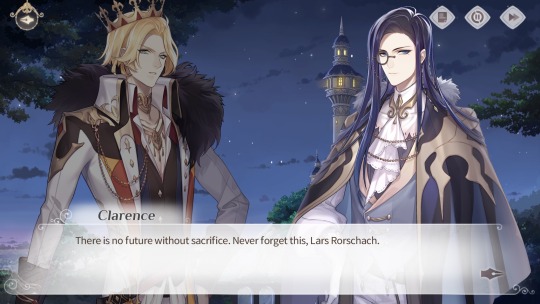
This downplaying of his own suffering, alongside his disregard of his own well-being, is what drives Clarence to self-sacrifice time and time again. When a theory about the Glacial Butterflies begins to take shape in his mind, he does not test it out on one of his mages, because he does not view them as expendable despite what he claims. Instead, he uses himself for his experiment, slicing his chest open and bearing the agonising pain in order to ascertain the truth of the magic within him.
On the verge of being overcome by the Glacial Butterflies, despite having prepared for this eventuality by shackling his limbs, he makes one last selfless request. “My Lord, you must kill me before I turn,” he entreats, willing to relinquish his own life for the safety of others. Even when Philip protects him from the Glacial Butterflies, refusing to kill him, Clarence believes that there is no place for him in the future that his Lord envisions.
Decades later, he still echoes this same sentiment. “There is no future without sacrifice,” he tells Lars, and he does not see himself as part of that future, does not see himself as deserving of that future. Archmage Clarence thinks of himself as a monster, not a man, and a monster is better off dead than alive.
It is a revelation, to him, that Amelia does not hate him. MC does not hate him. Lars, Alkaid, the mages that carry on the legacy of the Magi Tower, none of them hate him. They do not view him as a monster; they view him as a martyr, a protector, a saviour. Someone who did his best, and gave his all. Archmage Clarence leaves behind a legacy through his sacrifice, spurred by the human heart he still harbours deep within.
- ☽ -
Eden: Falcon Clarence
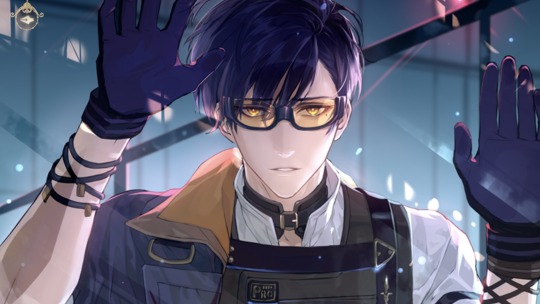
Next, we have the Falcon Clarence of Eden. The lone ranger of the desert, the mercenary that eliminates Sandswimmers with impeccable precision and works with no one else.
“A bait that only knows how to cry is a burden,” his mentor tells him, and Clarence internalises that into his cognitive framework and guiding compass. It is “the first lesson Liore taught [him];” that he must prove his worth in order to live. His scent lures the Sandswimmers to him, and so he must make himself useful by seeking out danger.
Valued only for his utility as bait, Clarence learns that his worth is determined by his fighting skills. With no other way to survive, he becomes a NEOS by fusing Sandswimmer gems into his body. Clarence pays the price of this acquired power through the gradual erosion of his memories, but that is far from the only thing he has lost. His decision to accept the integration of these foreign, beastly objects into his body has changed him irrevocably. He thinks of himself not as a human, but as a mutant being only one step away from becoming a monstrous Lost. Still, he endeavours to “remember [his] humanity,” because he refuses to become a “mere weapon [that knows] nothing but destruction.” Falcon Clarence understands that he is, by definition, a monster, but he refuses to relinquish the last shreds of his humanity.
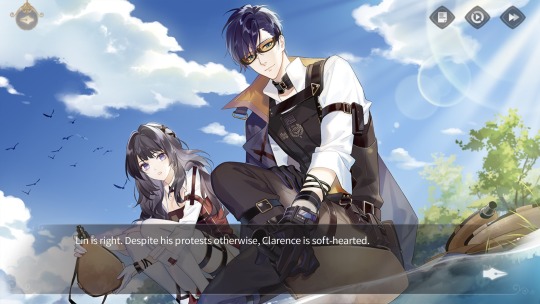
In his first encounter with MC, he is rational and pragmatic as always, scrutinising her motives and seeing no reason to work together. Years of solitude, with no one else to depend on, have honed Clarence’s reflexes into an “instinct for self-defence.” Yet his reaction to MC’s request reveals that his solitude has been shaped by circumstance, not entirely by choice. When MC explains her reason for seeking out Eden, even though it does not sound particularly convincing, Clarence accepts it as sufficient and agrees to lead the way. Despite the potential risk of allowing a stranger close, he offers MC a ride on his motorcycle. Subsequently, he continues to help her out, defending the children’s shelter and giving her the gems he’d collected, even as he refuses to follow her any further.
Falcon Clarence claims that he works alone, but everything he does is for the sake of protecting others. He fights in the desert to protect the shelters from Sandswimmers, and he fights in Eden to protect Lin and the other NEOS from the Lost. He brings MC to the NEOS Association, so that she can rest for a night and learn essential skills from Lin. He knows that the night is dangerous, so despite his own preference for working alone, he ensures that MC has a community of protection around her.
Even as he dismisses everything and everyone else as burdens, his actions speak otherwise. Despite having met MC for only a single day, he offers his assistance to her time and time again, from rides on his motorcycle to filling water bottles with her. He could easily leave her to fend for herself, but he chooses not to leave her behind even when that would be the easier way out.
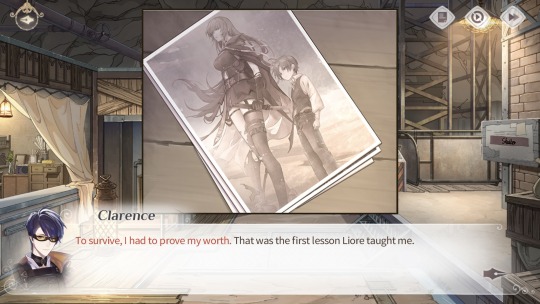
Perhaps the reason Clarence refuses to work with other people is that he’s afraid. Afraid of dragging them down, afraid of becoming their burden. He fears that history will repeat itself. He cannot bear to lose someone he cares for again, so he refrains from caring about anyone at all. Each time Clarence chastises others for being a hindrance, he is reproaching his past self for his inadequacy. Each time he risks his life to protect others, he is atoning for his failure to save his mentor.
MC says that she understands how Clarence feels, because “acting alone means nobody will be hurt because of [him].” In a way, acting alone also protects himself from being hurt. It is a defence mechanism born from his past, when he had to “learn to accept [his] losses” from a young age. He couldn’t afford to grieve Liore for long, not with the constant threat of the Sandswimmers, and so he could do nothing else but “live on with what memories [he] had left.” He’d forced himself to harden his heart to his emotions, but he could not suppress them entirely.
Clarence blames his moment of weakness, of emotional folly, for causing Liore’s death. It was her humanity, even in her final moments as a Lost, that held her back from killing him and caused her to die. He regrets his choice to this day, and perhaps it is this survivor’s guilt that pushes him to fight harder until he reaches the brink.
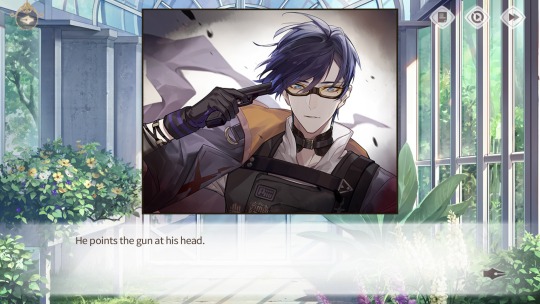
It is this same guilt, alongside his resolve to not lose anyone else he cares for, that drives him towards self-sacrifice. When he realises that MC needs a soul stone – his soul stone – to open the door within Central Control, he unflinchingly raises his gun to his head, as if it were the natural and logical decision to make. He is ready to offer his life without a moment’s hesitation, because that is the utility he can offer in this moment, in order to keep MC safe and help her achieve her goal. She has given him a reason to fight, and he will die trying to fulfil it.
Ultimately, it is his encounter with MC – and the companionship which blooms from it – that saves him. Without demanding anything in return, she cries for his pain, fights by his side, and shoulders his burdens with him. Clarence doubts his humanity, even as he holds fast to it, since he is all too cognisant of the monstrous traits within. In turn, MC’s unwavering trust reaffirms the humanity within him, reminding him that he is worthy of living.
Falcon Clarence may not be fully human on a biological level, and he may still succumb to the effects of the monsters within him from time to time, but he has managed to preserve his heart and his humanity. His tale is one of healing, of opening up, and of learning to value himself for who he is and not what he can do.
- ☽ -
Modern World: Clarence
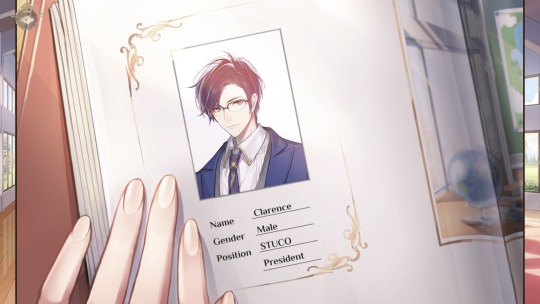
Finally, let’s circle back to modern-day Clarence. At first glance, he’s the calm, collected, and capable Student Council president, who always seems to have affairs in order and circumstances under control.
Then, in his Chrono Theatre diary entries, we learn that he had a psychiatrist observing him from a young age, due to his gifted aptitude and exceptional intelligence beyond that of his peers. This revelation sparked a discussion in the LBC discord server, which spurred this message of mine that then became the basis for this meta post:

Clarence is well-versed in decorum, but that doesn’t necessarily mean it comes naturally to him. It’s likely that he learned social etiquette by picking it up from observing how other people behave, so he knows the appropriate responses to give and the socially-acceptable ways to carry himself. However, because this social understanding is not an innate trait but a learned one, there are often times when he doesn’t recognise the need for social niceties, and instead his instinctual response – founded on his internal logic – comes through.
One example of this can be found as early as his second interaction with MC, after she paints an artwork of him:

The polite thing to do would be to express interest in or appreciation of the finished product, regardless of one’s actual feelings towards it. However, Clarence “doesn’t show the slightest interest” in MC’s painting. Does this mean that he doesn’t care for it, and doesn’t see the need to put on a pretence? Quite the contrary. Instead, it’s because he thinks he doesn’t have anything useful to offer in response, and thus he stays silent.
Here, we see a disconnect between how Clarence understands the world, and how other people tend to view it. While most people would appreciate receiving praise or validation, Clarence doesn’t particularly see the need to receive either, and thus doesn’t immediately think of giving them to others. Rather, he takes a more pragmatic approach, focusing on utility; a piece of work deserves feedback for the effort poured into it. However, as a law major, he does not have sufficient knowledge or expertise regarding art. As such, he believes that his feedback would not be useful, and thus it is better not to say anything at all.
This ties into how Clarence views himself as his roles, and the functions he can serve. He understands that he has worth, but he evaluates this worth through his services as the Student Council president, or his contributions as a law intern. When he assists others, he doesn’t think of it as going out of his way to help them; instead, he views it as part of his rightful duty.
As a result, Clarence doesn’t view himself as simply “Clarence.” Rather, he thinks of himself as Clarence, the Student Council president; Clarence, an upperclassman; Clarence, a friend. If he can fulfil someone’s needs through a role that he holds, he will do it, even at the expense of himself.
We see this most prominently in Clarence’s “Break Time” R card story:
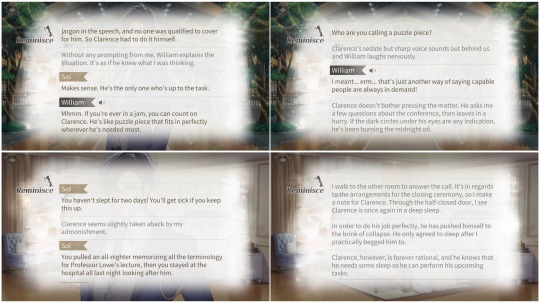
When the senior who’s supposed to interpret for an academic speaker falls ill and fails to attend, Clarence steps up to fill their shoes last-minute. William notes that Clarence can be counted on to show up whenever and wherever he’s needed, and MC agrees that he’s “the only one who’s up to the task.”
However, what most people don’t recognise are the sheer lengths Clarence will go to in order to fulfil his duties. On top of his regular responsibilities, filling in for the interpreter caused Clarence to “[burn] the midnight oil” preparing for the speech, and taking care of the sick speaker meant that Clarence could not sleep for two days. He doesn’t recognise that he’s constantly going above and beyond, because to him it’s a given, but he is in fact pushing himself past his limits, and past the line that most people would draw.
It’s interesting to examine MC’s thoughts here, because she interprets Clarence’s willingness to take a nap as a rational understanding that he needs to rest in order to keep functioning. However, this only happens after MC coaxes him into taking a break. If she hadn’t intervened, Clarence would have continued pushing himself until he completed his task – he was already at “the brink of collapse,” and he “only agreed to sleep after [MC] practically begged him to.” Clarence prioritises his responsibilities to the point that he does not recognise his own needs, and thus neglects to take care of himself.
Although modern Clarence doesn’t think of himself as different, or as anything less than a person, it’s evident that he views himself as the roles he fulfils rather than simply as who he is. In turn, this mindset is reflected in his behaviour, which then shapes other people’s perceptions of him. This is how Clarence becomes characterised as the aloof and intimidating Student Council president in the students’ eyes, even though he cares so deeply and helps out so much; most people are unable to look deeper and see Clarence as the person that he is, because he perceives and presents himself through the lens of his roles.
As such, other people often view Clarence as different from themselves – as if he’s operating on a different wavelength, or existing on a separate plane entirely. Modern Clarence’s genius sets him apart from his peers, but more than that, his perspective of himself winds up alienating himself from other people. Clarence views himself as like others, but others view him as unlike them. He blends in well enough, but he doesn’t quite fit in; he has a place in society, but he doesn’t quite belong.
- ☽ -
Clarence, across time and space
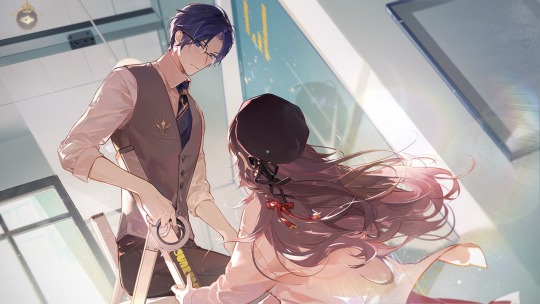
Out of all the Clarences thus far, modern Clarence is perhaps the most well-adjusted, and this reflects the importance of having a support system. Godheim Clarence and Eden Clarence were isolated from a young age and survived alone throughout most of their lives, whereas modern Clarence had family and friends around him. He may not have had the most conventional childhood, but he grew up with his older sister Jaclyn and his close friend Luca, and he also had his psychiatrist Ford observing and monitoring his development. Subsequently, after he enters St Shelter Academia, he gains a circle of friends he can rely on, such as William, O’Connor, and, of course, MC.
Expanding upon Clarence’s St Shelter Academia bonds, we see that Clarence has people around him who genuinely like him for who he is, and are willing to support him unconditionally. O’Connor affectionately refers to Clarence with a nickname – “Shi-kun” in the Japanese voiceover, or “Little Si Lan” in the Chinese one – and for all his devious teasing, it’s clear he looks out for his Student Council successor. As for William, he may whine about Clarence’s by-the-book discipline, but his clumsiness and complaints do not preclude him from helping out when needed. For all that Clarence often chastises William, he still relies on him to assist with Student Council matters, and he knows William is someone he can trust.
Compared to these two, MC is a relatively newer connection, but her bond with Clarence runs deep. Right off the bat, she’s able to meet him on his level and banter with him, and he lets down his guard enough to subtly tease her for trying to trick him. As their relationship develops, Clarence grows to trust her, sharing his inner thoughts and admitting his vulnerabilities. MC is a safe haven for him, and she understands him on a level deeper than most. While the other students may fear Clarence for his aloof disposition, or hesitate to approach him due to his detached rationality, MC sees the earnest sincerity woven into his actions and the warmth laced through his words. Others may think of him as an unfeeling robot or a terrifying monster, but MC loves him for the human that he is.
There’s a subtle but interesting juxtaposition here, in which Godheim Clarence and Eden Clarence – both possessing monstrous mutations within them – view themselves as monsters while most others do not, whereas modern Clarence – wholly human – views himself as human while most others do not. All three Clarences are keenly aware of what constitutes them, allowing this biological understanding to shape their perception of themselves, but they do not recognise that their actions paint a different picture to others.
Regardless of the world he inhabits, Clarence constantly straddles the line between man and monster. His selfless nature and dutiful diligence often lead him to self-sacrifice and superhuman feats, creating the illusion of a monster – but beneath this facade lies, always, the heart of a human.
- ☽ -

thank you for reading!♡
if you have any thoughts about this meta post, i'd love to hear them! responses are always welcome, and my ask box is open~
up next: android clarence, and the inevitability of tragedy. where is the line between human and machine? stay tuned for my thoughts on clarence's awakening main story!
#lovebrush chronicles meta#lovebrush chronicles#for all time#lbc#lbc spoilers#clarence clayden#lbc clarence#lovebrush clarence#godheim clarence#eden clarence#modern clarence#sol's meta musings
155 notes
·
View notes
Text

British santa except he just robs your house
Im so ready for holly jolly heathcliff
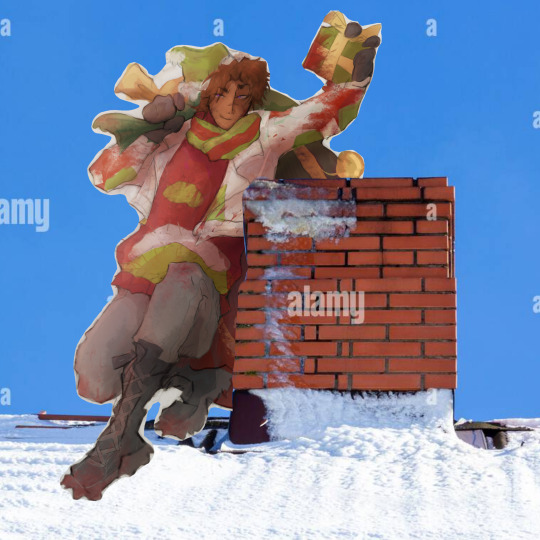
#limbus company#lbc#limbus company fanart#project moon#heathcliff lbc#limbus fanart#lcb heathcliff#heathcliff limbus company#my art
288 notes
·
View notes
Text


I think they’re neat
#limbus company#lbc#digital art#ishmael limbus company#ishmael#faust lcb#faustmael#ishmael lcb#i love yuri
258 notes
·
View notes
Photo
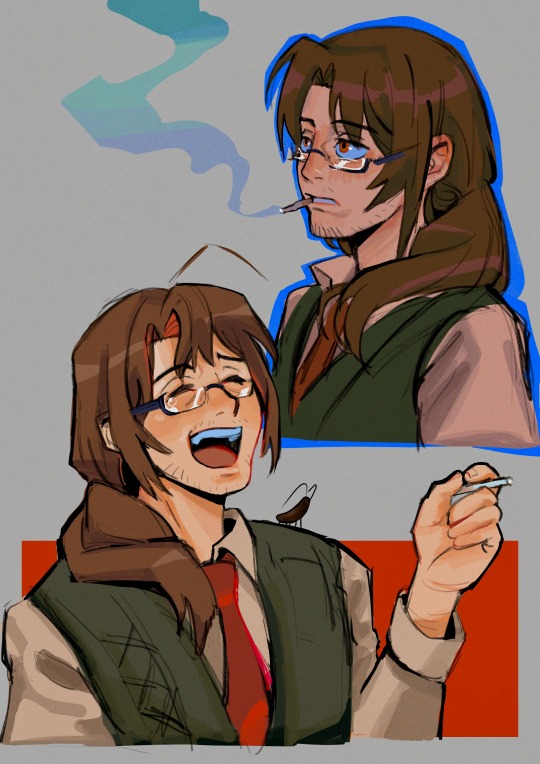
Gregor best roach man
#limbus gregor#gregor#limbus company#limbus#limbus fanart#fan art#digital art#art#anime#sketch#drawing#lcb#lbc#project moon#digital drawing#Illustration#character#fanart#character art
634 notes
·
View notes
Text

😭😭😭 why did this suddenly popped in my head..?
(Ignore luminary's cape in the wrong way, I drew him when I flipped the canvas.. I am to lazy to fix it)
#lovebrush chronicles#lbc#silly#lovebrush chronicle memes#for all time#lovebrush chronicles memes#lovebrush alkaid#alkaid mcgrath#eden alkaid#lbc alkaid
21 notes
·
View notes
Text
Prefect Luminary ✨️

100 notes
·
View notes
Text
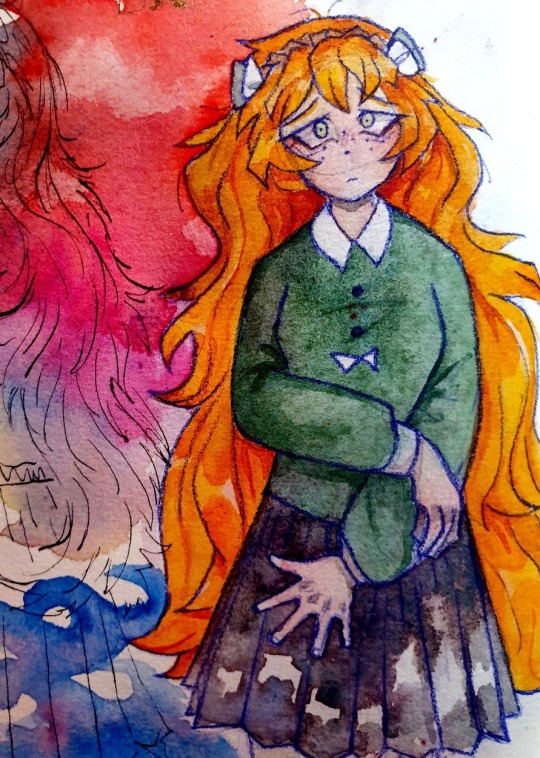
My compass is curiosity
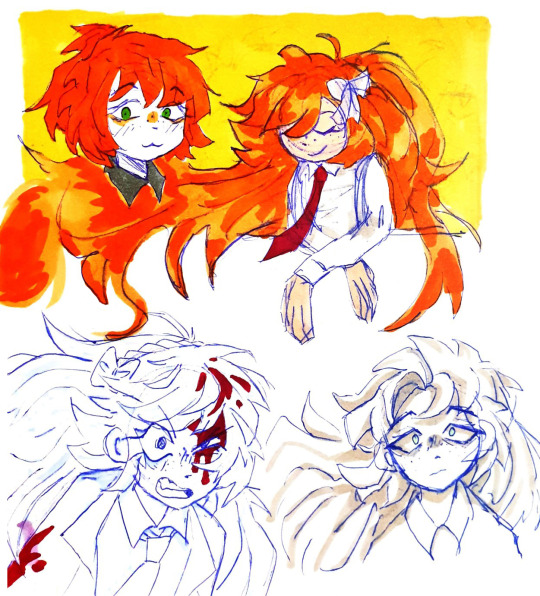
188 notes
·
View notes
Text
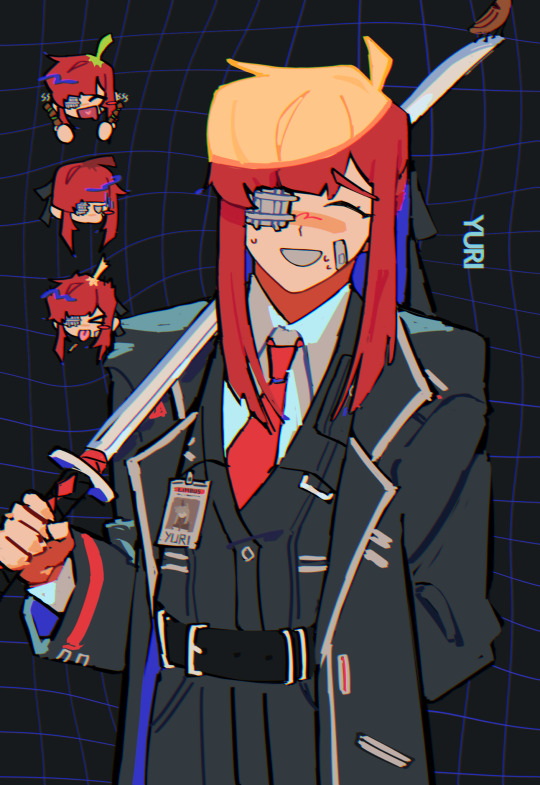

🍎
1K notes
·
View notes

